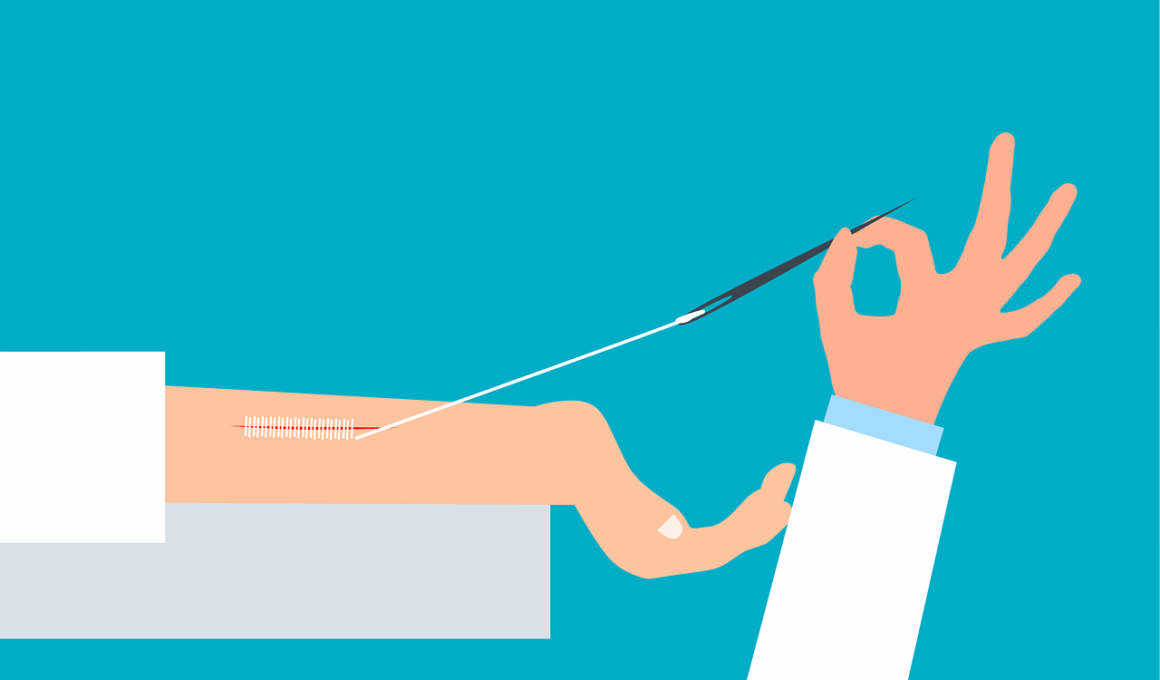The Psychological Effects of Visible Scars in Athletes
Visible scars can have profound psychological impacts on athletes, often affecting their self-esteem and confidence levels. Athletes represent the pinnacle of physical prowess, so any physical imperfection, including scars, can lead to feelings of inadequacy. The presence of a visible scar can constantly remind an athlete of their injury, creating a mental hurdle in their rehabilitation process. This can lead to anxiety and affect performance during training and competitions. Furthermore, the competitive nature of sport can lead athletes to avoid discussing their scars, feeling isolated in their struggles. According to studies, athletes with visible scars report higher instances of body image issues compared to those without such marks. Managing the mental aspects of scar visibility is crucial, as focusing on the injury rather than the recovery can hinder progress. Athletes might also associate their scars with failure, which can develop into a negative self-image. Developing a positive mindset toward these marks can help in overcoming psychological barriers, ultimately enhancing recovery. Support systems, including therapists and peer groups, are essential for providing the necessary mental fortitude required to continue performing at high levels despite visible scars.
Understanding Mental Health in Athletes
Mental health plays a significant role in an athlete’s career, particularly concerning visible scars. Often, athletes tend to overlook their mental well-being, focusing predominantly on physical attributes. The challenges posed by visible scars can compound pre-existing mental health conditions, such as anxiety or depression. Despite their physical prowess, athletes are vulnerable to emotional distress following injuries. The process of accepting a visible scar can be challenging, disrupting their identity as high-achievers. Coaches and trainers must recognize these psychological barriers and encourage open dialogue about mental health. Normalizing mental health conversations can foster an empathetic environment, helping athletes navigate their feelings regarding scars. Developing coping mechanisms and strategies, such as visualization techniques or mindfulness practices, can facilitate acceptance. Engaging in therapy specifically designed for athletes can also be beneficial. These benefits can pave the way for a healthy relationship with their scar, transforming it into a badge of resilience rather than a symbol of defeat. By prioritizing mental health alongside physical recovery, athletes can maintain their competitive edge while addressing the emotional impacts of visible scars on their identity and performance.
The journey of scar management extends beyond physical healing, diving deep into the emotional landscapes that athletes navigate. Athletes often experience a myriad of emotions associated with their scars, ranging from embarrassment to pride. A significant aspect of this emotional journey involves recognizing that scars can serve as reminders of the resilience required to overcome adversity. These athletes can transform their feelings surrounding scars, viewing them as symbols of triumph rather than blemishes. Educational initiatives focusing on body positivity can shift perspectives, promoting acceptance and self-love. Resources available include books, seminars, and workshops focused on body image and emotional well-being. Additionally, community support from fellow athletes can play a pivotal role in normalizing discussions about visible scars. When athletes share their experiences and coping strategies, constructive dialogues emerge that help others feel less alone. Furthermore, engaging in media campaigns that celebrate diversity in athleticism can challenge societal standards around physical appearance. Such initiatives can empower athletes to embrace their scars, transforming the narrative surrounding them into one of strength and courage, reinforcing the idea that imperfections can enhance rather than diminish their athletic identities.
Physical Recovery and Mental Resilience
Physical recovery from an injury is just one part of the journey for athletes dealing with visible scars. The intersection between physical healing and mental resilience is crucial for comprehensive recovery. Rehabilitation programs must incorporate psychological support to address the mental implications that come with visible scars. Evidence suggests that athletes who engage in targeted mental conditioning alongside their physical therapy experience better overall recovery results. Strategies such as setting realistic goals, maintaining a positive mindset, and practicing visualization can enhance both mental and physical rehabilitation outcomes. Mental toughness can be cultivated through techniques such as meditation, affirmations, and positive self-talk. As athletes rebuild their physical capabilities, the emotional weight of their scars may persist, leading to regression in recovery. Regular check-ins with sports psychologists can facilitate open discussions about scar-related insecurities and fears. This integrated approach not only addresses the visible scars but also helps athletes regain their confidence and focus on performance improvement. Bouncing back demands curating a resilient mindset, allowing athletes to confront not only the physical challenges but the emotional obstacles tied to scars from their journey of recovery.
As athletes navigate their path to recovery, engaging with the visibility of their scars can significantly enrich their psychological journey. Embracing support from mentors, trainers, and fellow athletes initiates a network of positivity that is essential for mental well-being. Sharing experiences and personal stories about scars fosters an environment where vulnerability is accepted and treated with compassion. The psychological effects of visible scars can ripple across an athlete’s life, influencing self-perception and performance. It is vital to encourage athletes to view their scars not merely as a flaw, but as a testament to their journey and perseverance. Initiatives that allow athletes to express their feelings about their scars, whether through art, writing, or speaking, can be incredibly therapeutic. Regularly engaging in such activities helps in the processing of emotions linked to their scars, thus promoting healing. Seeking professional help when necessary is also crucial, as therapists can guide athletes in coping with trauma associated with their injuries. Ultimately, transforming the narrative from one of shame to one of pride and resilience can empower athletes to view visible scars as milestones in their journey, enhancing both mental and emotional health.
Reframing the Narrative of Scars
Reframing the narrative surrounding visible scars can significantly impact an athlete’s mental health. Rather than viewing scars solely as reminders of pain and injury, athletes can learn to identify them as symbols of growth and resilience. Organizations and support groups dedicated to athlete well-being are increasingly emphasizing this shift in perspectives. Through outreach programs, athletes are educated about reframing their perceptions of scars from unappealing markers to inspiring symbols. Workshops focusing on storytelling help athletes articulate their journeys, expressing not just their struggles but also their triumphs. Sharing personal testimonials can create connections among athletes, enhancing collective healing experiences. Sports culture can move away from stigmatizing visible scars, allowing athletes to embrace their stories without shame. Utilizing social media to showcase athletes with scars can further alter public perception and break stereotypes surrounding injuries. For athletes, involvement in these initiatives can cultivate a sense of pride and community. With the right support, visible scars can evolve into badges of honor, signifying not only their victories over adversity but also their unique and inspiring journeys in the world of sports.
In conclusion, the psychological effects of visible scars in athletes call for comprehensive approaches to healing. It is crucial to recognize that an athlete’s mental health dependence is intertwined with their physical recovery. Addressing the emotional journey associated with visible scars requires combined efforts from trainers, psychologists, and the athletic community. Providing adequate mental support alongside physical rehabilitation is vital for creating a holistic recovery experience. Engaging in dialogues about mental health and embracing visible scars as part of the athletic narrative reinforces positive self-images. Increasing awareness about the challenges athletes face when dealing with scars can foster compassion within the sports community. Moreover, educational programs that promote body acceptance and mental resilience are beneficial in inspiring younger athletes. As societal views on scars evolve, embracing one’s unique journey will yield stronger, more empowered athletes. Celebrating these stories not only helps individual athletes but also contributes to a wider cultural shift toward recognizing the beauty of the scars that signify resilience and triumph. For athletes, reclaiming their narrative offers a pathway to reconnect with themselves, allowing them to continue pursuing their passions despite the scars they carry.



